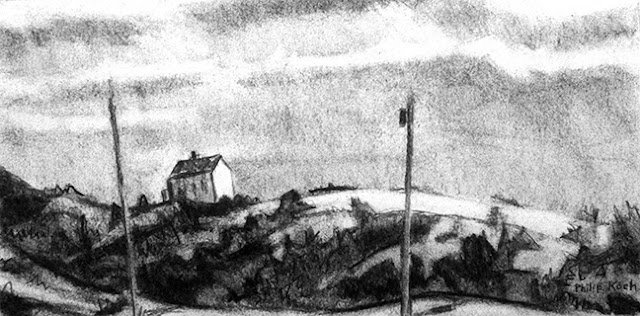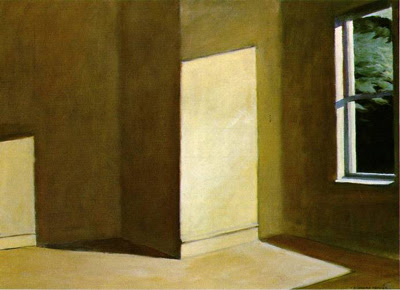Warmth of a Frozen Memory
Panorama, oil on canvas, 36 x 48 inches, 2018
In June of 2015 I began traveling to Buffalo, NY as the Burchfield Penney Art Center’s Artist in Residence. One of the first places I went to paint was Chestnut Ridge Park, miles south of Buffalo, an area where the artist Charles Burchfield did some of his landscape work.
I loved the view from the
Park’s overlook facing north- miles of forest and fields leading towards Lake
Erie. The Lake at this distance was just the thinnest band of silver-white but
it exerted a surprising pull on me. Sometimes you will see something that
catapults you back in time.
I grew up on the shore of
Lake Ontario in the then rural town of Webster, NY. A school bus would take me
on a half hour long tour of the rolling countryside every morning and
afternoon. Usually I rode lost in my daydreams. But there was one spot on the
route where I’d rouse myself so as not to miss the view. As the bus crested the
top of a particular hill it offered a me stunning glimpse of Lake Ontarios’s wide
expanse framed by a field and dense woods. It never failed to excite me and
leave me feeling that the world was something to celebrate.
That the Chestnut Ridge
panorama evoked a powerful response in me suggested a major painting was in the
offing. I did a whole series of drawings from the overlook. On canvas I tried
out a number of compositions. Over many months of painting though I kept
cutting away the middleground spaces-it became clear what I was really
interested in was the far lakeshore itself.



